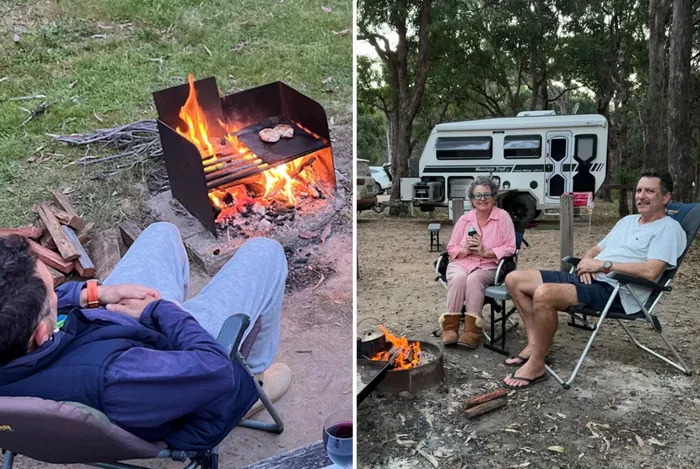Australians in New South Wales could soon be hit with steep price increases for camping as authorities seek ways to address the ongoing issue of ghost camping. This phenomenon, where individuals book campsites but do not show up, has left many campgrounds across the state underutilized, despite being fully reserved online. In response, the NSW National Parks and Wildlife Service (NPWS) has proposed a significant fee hike, potentially raising costs to nine times their current rates in an effort to deter campers from overbooking.
However, Heatley Gilmore, a seasoned camper and developer of a popular camping app that helps Australians locate free campsites, argues that the proposed solution targets the wrong problem. With three decades of camping experience under his belt, Gilmore believes that price hikes will do little to reduce ghost camping unless the booking and customer management system itself is reformed. He emphasized that simply increasing fees without altering the way bookings are handled would fail to bring meaningful change.
The NPWS has outlined a new pricing structure designed to discourage excessive bookings. Under this plan, campers would receive up to 80 percent of their fee back if they cancel at least three days in advance, and up to 50 percent for cancellations made later. Full refunds would be avoided to prevent people from securing multiple sites and cancelling them at the last minute, which currently contributes to the ghost camping problem.
Instead of financial penalties or deterrents, Gilmore recommends a straightforward technological solution. He suggests implementing an automated reminder system that would send periodic messages to campers via text and email, reminding them of their upcoming bookings and offering an easy opt-out option. This approach would not only notify campers more frequently but also facilitate last-minute cancellations, instantly making those sites available for others.
Currently, campers receive limited communication ahead of their stay, usually just one or two reminder emails detailing campground rules and check-in procedures. Gilmore argues that increasing the frequency and interactivity of these reminders would significantly improve the situation, as many no-shows are simply the result of forgetfulness. He maintains that most people would respond responsibly to automated prompts if they were given an easy and convenient way to manage their reservations.
The issue of ghost camping has had tangible effects on travelers throughout Australia. Yahoo News has highlighted stories from frustrated campers, including Jade Payne, who said the issue disrupted her entire trip with her husband and four children. Other full-time travelers echoed similar sentiments, noting that it’s common to find booked-out campgrounds sitting virtually empty, preventing many from finding accommodation despite ample space.
In response to the widespread frustration, some states have already taken more aggressive steps. Queensland, for instance, introduced a $322 fine last year for campers who fail to show up after making a booking. This regulation is currently the strictest of its kind in the country and is part of a broader state-level effort to curb the impact of ghost camping.
Meanwhile, voices like Mike Atkinson, better known as Outback Mike, have joined the national debate. A dedicated camper and outdoor enthusiast, Atkinson has accused national parks of capitalizing on the growing popularity of camping by implementing higher fees. He argues that such measures exclude low-income Australians from enjoying national parks, a resource that should be accessible to all. Atkinson has called for the removal of the current booking system altogether, advocating instead for a return to the first-come, first-served model that was common before the Covid-19 pandemic.
As Australian authorities continue to wrestle with the challenges of managing public campgrounds, the debate underscores a broader question about access, fairness, and the role of technology in modern outdoor recreation. While financial deterrents may offer a short-term solution, voices within the camping community argue that smarter systems—not steeper costs—are the key to keeping this cherished national pastime both fair and functional.
Related Topics
- Ricketts Glen State Park Offers Challenging Adventure and Natural Escape
- Tragedy on the Trail: 74-Year-Old Doctor Dies During Grand Canyon Rim-to-Rim Hike
- Mt. Baldy Resident Arrested After Allegedly Threatening Hikers with Weapons

